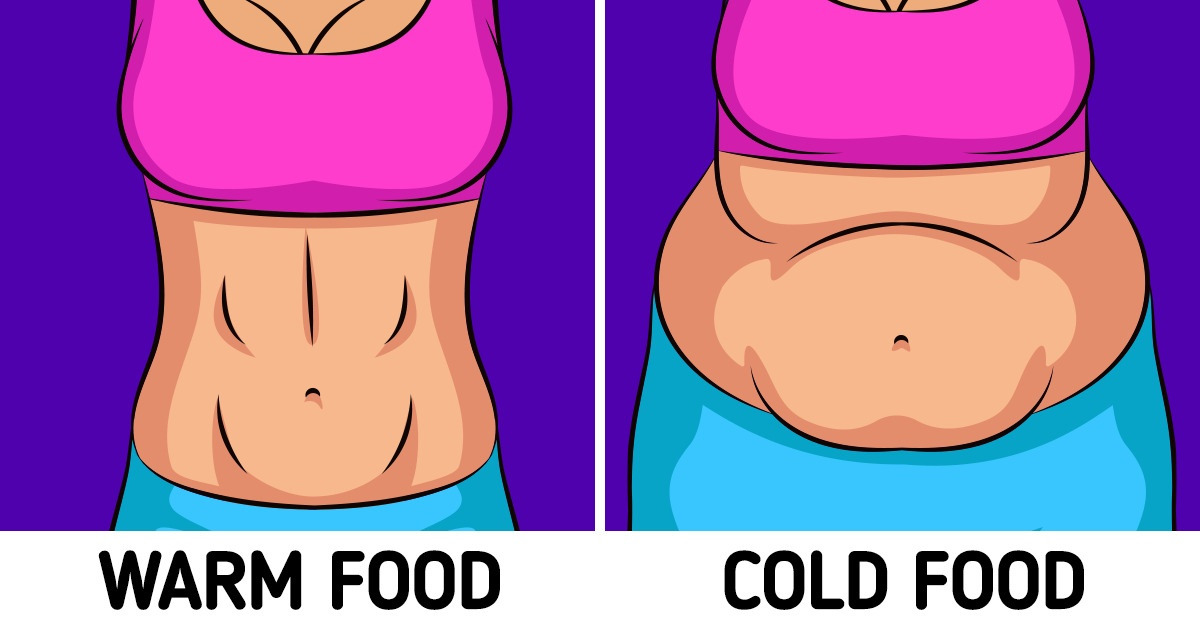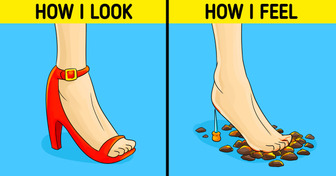16 Small Things That Make Women Appear Older, Even If They Spend Loads of Money


Ice cream is much sweeter when cold, while ham is more savory when eaten warm. However, the difference in taste is only one aspect of the hot and cold debate. That’s why we decided to dig deeper and find other facts about how hot and cold food affects our bodies. And you can find out all about them if you stick around — we promise you’ll find a few surprises.
As a recent study showed, there is a common misconception that hot food has more calories because it fills you up faster. However, researchers found that people who choose cold over warm dishes tend to consume more calories. To be more specific, they consume at least 31% calories, at least 37% fat, and more than 22% carbohydrates. This problem was even more noticeable with people suffering from obesity, and one proposed solution would be to add a hot dish along with a cold salad.
The way our bodies digest food is by bringing it to our core temperature. This means that when we eat something cold, our body has to put in double the effort in order to first warm the food and then digest it. For example, hot soup only takes 15 minutes to be digested by our stomach. On the other hand, dairy, especially ice cold ice cream, will take anywhere from 30 minutes to 2 hours.
This doesn’t mean that you should stop eating cold food since fruits and vegetables, in particular, are best to eat raw. What you can do with other cold dishes is to keep them in your mouth for longer so the enzymes can start breaking it down while warming it up.
Warm food is indeed digested easier and, as a result, all the nutrients are absorbed a lot faster from the body. Not only that but when some vegetables, such as tomatoes, are cooked, the amount of lycopene is increased. Also, hot cereal, like oats, are rich in fiber and aren’t coated in sugar like cold cereal normally is.
However, one downside of cooking fruits and vegetables is that the vitamins melt away. So, the best thing you can do is cook them as little as possible. No matter how you choose to cook them, keep in mind that they don’t need to be like mush — just still a bit crunchy.
Cold water is said to be emptied from our stomach a lot faster and therefore absorbed better than when it’s hot. Another benefit is that cold water helps increase endurance for those who train on a daily basis or very often. Also, it was found that warm water will make you drink smaller quantities, something that could lead to dehydration. On the other hand, drinking relatively cold water (16°C or 60°F) is said to be the absolute best temperature.
This is because people were found to drink more water with that temperature and sweat less. However, you should be very careful with drinking cold water if you suffer from conditions that affect the esophagus. In these cases, you should resort to warm water so your food pipe feels relieved.
The reason this happens is that hot food doesn’t make your appetite return to you that fast. This is due to the nutrients that are released in your food, making it taste so much better. So, your feeling of satisfaction is highly increased and the speed by which you consume your dish is decreased. While you’re eating slowly, your brain is getting signals that you are starting to become full.
So, eating slowly allows you to eat just as much as you need and your brain suppresses your appetite for longer after you’ve finished eating. A great example is soup, which isn’t only eaten hot but is also almost only water. The liquid helps you eat it a lot easier and it fills you up a lot faster than solid and cold food.
There is no doubt that hot drinks, like coffee, tea, and soup, can make you feel warm and fuzzy. But there are also some cold drinks and foods that can contribute to increasing your body temperature. Ice cream, for instance, is also a delicious food that might give you the chills at first during the cold months, but later, it makes you feel warm.
That’s because of its high fat and protein content, which heat the body up while you digest the food. Also, your body puts in much more energy to digest the fat, an effort that increases your temperature and makes you feel hotter.
When you cook a meal above 149°F (65°C), it’s very hard for any possible micro-organisms to survive and cause you harm. The same applies to water that you’re not sure the quality of. On the other hand, cold carbonated drinks, like soda, can cause discomfort to your stomach and even nausea. Another thing cold food can cause is the formation of gas in your gut, something that could result in bloating.
What is your preferable food and drink temperature? Have you noticed any positives or negatives depending on how cold or hot your meals are?











